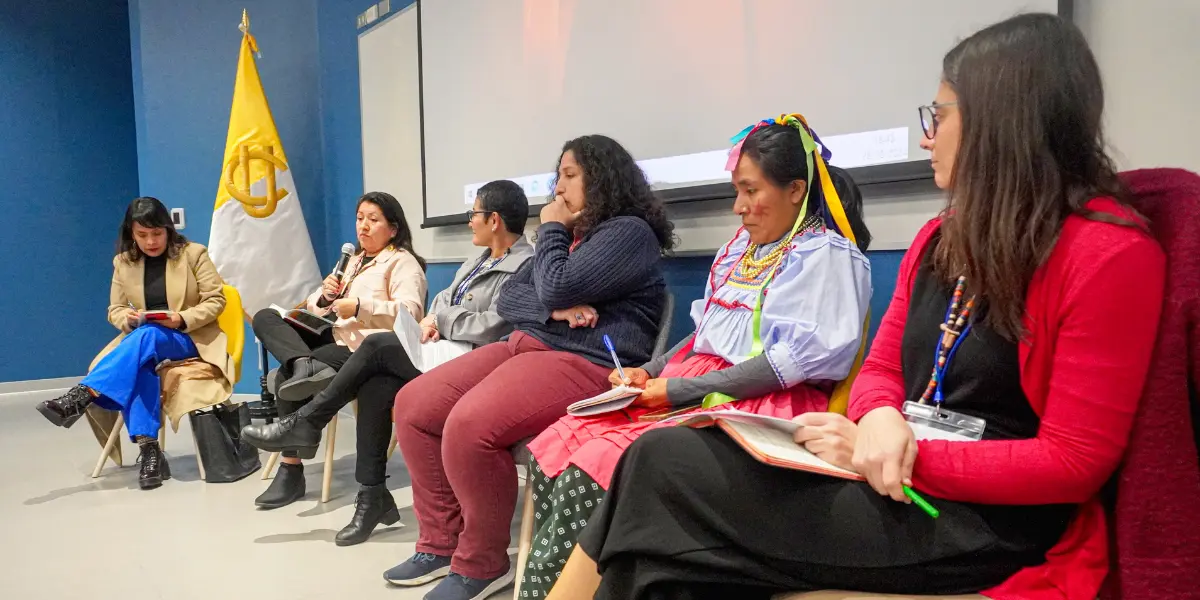Women's roundtable: Indigenous leaders and experts discuss climate justice


On August 28, 2024, a roundtable took place bringing together various panelists to discuss the integration of indigenous perspectives into climate policies. Moderated by Maritza Paredes, the discussion covered perspectives on territorial security, climate financing, and the need for greater collaboration between sectors and with indigenous representatives for climate justice.
The event brought together prominent voices in the field of climate justice and indigenous participation, including Fabiola Muñoz, former Minister of MIDAGRI and MINAM; Nelly Luna, environmental journalist; Nelsith Sangama from AIDESEP; Maite de Cea from Diego Portales University (Chile); and Ketty Marcelo from ONAMIAP.

The goal of the roundtable was to create a space for discussing the challenges faced by Indigenous Peoples in the context of climate change and to explore how to advance towards climate justice in an effective, intersectional, and cross-sectoral manner.
Event Introduction
Peter Hausschnick, en representación de la Agencia de Cooperación Alemana (GIZ) y aliado de la PUCP en esta actividad, inició el evento destacando la importancia de elevar las voces indígenas en la discusión climática. Hausschnick presentó el proyecto «Puna Resiliente,» centrado en la adaptación al cambio climático en zonas altoandinas. Este proyecto, coordinado por la PUCP en colaboración con la Universidad Diego Portales y financiado por el IDRC de Canadá, busca integrar a Pueblos Indígenas en la formulación de políticas climáticas en Perú y Chile.
Key messages from the panelists
Questions and answers
During the event, questions were raised about developing success indicators for climate public policies, Indigenous perceptions of carbon markets, and implementing Indigenous alternatives to REDD+. The panelists addressed these concerns, providing valuable perspectives on how to overcome challenges and improve the inclusion of Indigenous communities in climate policies.
Conclusion
Maritza Paredes concluded the event by thanking the panelists and attendees for their participation. The roundtable highlighted the importance of integrating Indigenous perspectives and knowledge into the formulation of climate policies, as well as the need to strengthen collaboration among different sectors to achieve effective climate justice.
RAZÓN SOCIAL: PONTIFICIA UNIVERSIDAD CATOLICA DEL PERU
RUC: 20155945860